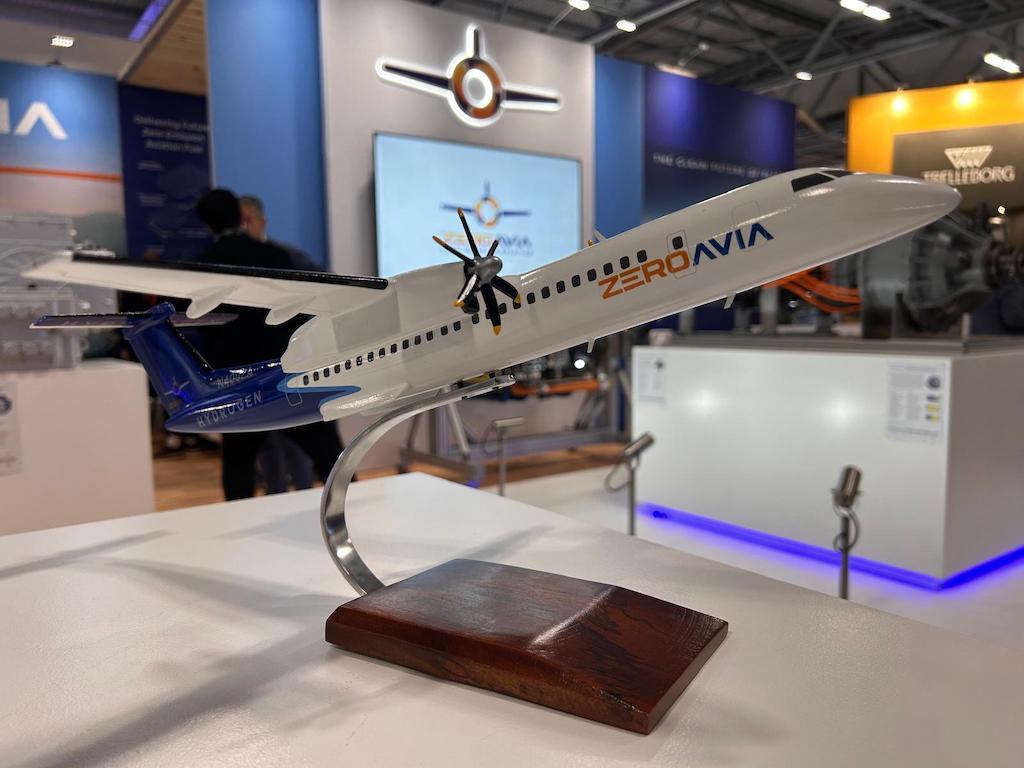
ZeroAvia's ZA600 powertrain will power small regional aircraft up to 20 seats.
Dutch carrier KLM has teamed with hydrogen-electric powertrain developer ZeroAvia to run a large turboprop trial flight using the ZA2000 powertrain in 2026.
Airbus-funded ZeroAvia has applied for FAA and UK CAA design certification for its ZA600 powertrain, which will power small regional aircraft up to 20 seats. Beyond this, it is developing the ZA2000, for use on larger turboprops with 40- to 90 seats, such as ATRs and de Havilland Dash 8 Q400s.
At the Farnborough Airshow, ZeroAvia and KLM announced plans to perform an initial ZA2000 demonstration flight between two unnamed airports in 2026.
“As well as identifying the optimal airport pair, immediate workstreams will be working towards regulatory permits to fly and ensuring supply of liquid hydrogen fuel and putting in place the supporting infrastructure for aircraft fueling,” the partners said.
KLM and ZeroAvia are looking to generate data to support the sustainability benefits of hydrogen-electric flights. ZeroAvia estimates that its technology can cut climate impact by up to 90% compared with traditional kerosene-powered flight.
The partners are also looking to develop operational know-how for European Union hydrogen-electric operations. Air France and KLM’s maintenance divisions are working with ZeroAvia on MRO operations for hydrogen fuel cell aircraft.
“We are conducting research on electric, hydrogen, and hybrid-powered flights and exploring ways to expedite these advancements,” KLM Cityhopper MD Maarten Koopmans said.
ZeroAvia chief customer officer James Peck said commercial airlines are looking at hydrogen-electric aircraft with “increasing seriousness.”
In the run up to the KLM test flight, ZeroAvia is ground testing its ZA2000 hydrogen-electric powertrain on an Alaska Airlines de Havilland Canada Dash 8 Q400.
Certification of the ZA600 is expected in 2025, followed by entry into service (EIS) in 2026. The ZA2000 is expected to follow, with engine certification in 2027 and EIS in 2028.
Explorations are also underway for a regional jet variant, the ZA2000RJ. This is being developed in partnership with Mitsubishi’s regional jet division, which owns design rights to the CRJ platform.





